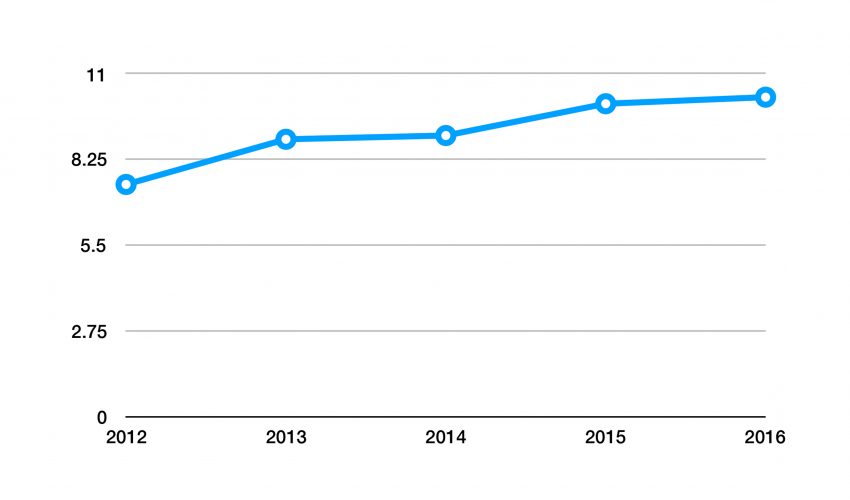Think about what a day looks like for today’s teenager.
Most days, you’re balancing eight hours of class, after-school activities, hours of homework and maintaining relationships with family and friends. Some are doing all that while working part time. Most are doing it while trying to maintain a certain image in the outside world, in person and online — all while internally struggling with self-esteem issues that are common during adolescence.
For some teens, online image holds a lot of importance. The Pew Research Center reports 94% of teens who go online using a mobile device do so daily, and 71% use more than one social media site when they do. That can lead to intense peer pressure, scrutiny and stigma for today’s teens that their parents and teachers didn’t face growing up. And experts believe these added pressures can make teens more vulnerable to extreme thoughts and actions such as suicide.
In Tennessee:
- Suicide is one of the leading causes of preventable death
- More than 1,100 Tennessee teens commit suicide every year
- Tennessee’s rate of teen suicide has been increasing for more than a decade. In the U.S. as a whole, we lose more than 113 young people each week to suicide.
Suicide Rates for Youth Ages 10-24 in Tennessee

Rates out of 100,000. Source: Tennessee Department of Health, Division of Health Statistics
The real-life toll of social media
While social media gives teens an outlet to connect with others, express themselves and seek support and information, it also opens doors to issues such as cyberbullying, the pressure to appear perfect and the competition to gain more likes, comments and follows. The facts are jarring:
- Vanderbilt University recently conducted a study that showed hospitalizations for suicidal ideations and acts have doubled over the last decade.
- Nearly two-thirds of trips to the ER for attempted suicides are girls, the majority of whom are 15 to 17 years old.
- Teens who spend more time using social media on devices and less time meeting friends in person show higher rates of depression, suicidal thoughts and actions.
- Another study from the Journal of Affective Disorders revealed that there is a link between social media and anxiety. More time spent using social media was associated with greater symptoms of dispositional anxiety.
“We’re better than ever at vaccinating and preventing disease, and now we’re really struggling with mental health issues with kids,” said Dr. Greg Plemmons, clinical pediatrician and lead author of the Vanderbilt study, in an interview with WSMV. “We see a big increase when school starts. Females, in general, are bigger users of social media. If your kid is spending more than three hours a day on screens, that increases their risk of depression.”
Emotions in play
For many, adolescence is an emotional roller coaster of highs and lows, and scientifically, that makes sense. According to the University of Rochester Medical Center, teen brains are still developing connections between rational thought and emotions until age 25. Adults think with the prefrontal cortex (the rational part of the brain) which filters situations using judgment and awareness of long-term consequences.
Teens process information with the amygdala, the emotional part of the brain.
Teens also may not yet have learned coping mechanisms that often come with experience, which can lead to impulsive reactions.
Further complicating the situation, teens may experience psychological conditions including depression, bipolar disorder, schizophrenia and substance abuse. Nearly 30% of Tennessee high school students report feeling sad or hopeless according to a survey by the U.S. Department of Health & Human Services, and for girls alone that jumps to 38%. These conditions have a big effect: some studies show that up to 95% of people who commit suicide have experienced psychological issues.
Education for parents
With more than 1,100 teen lives lost each year to suicide in Tennessee, parents can take a few simple steps to learn more about the issue. They can offer support by reaching out to their teens, listening and encouraging open dialogue about how to cope with emotions and stress. Parents should also look for signs and become proactive as soon as they suspect a child may be struggling.
To learn more about teen suicide and the signs you should look out for click here.



